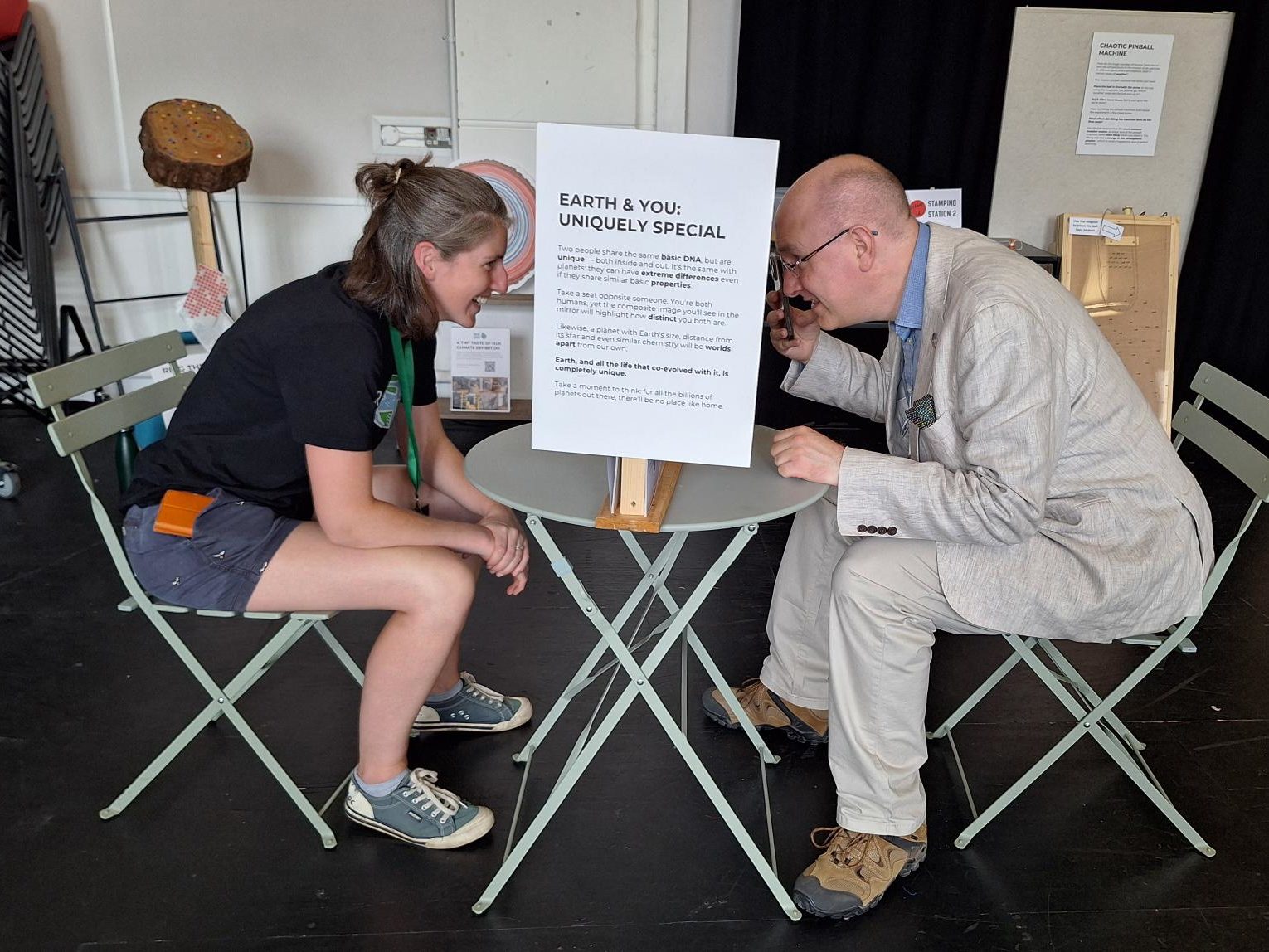The inaugural Exeter Climate Forum, hosted by the University of Exeter in conjunction with the Met Office, brought prominent academics, policymakers, businesses, and young people to its conference events in Exeter. Alongside these main events, a diverse range of community activities were delivered to engage local voices in these pivotal discussions.
From the 30th June to the 4th July, Exeter’s Streatham Campus opened its doors to experts in climate science and policy, showcasing world-leading research at both the Global Tipping Points, and Exeter Climate Conferences. Elsewhere across the city, public-facing events focussed on engaging new audiences with climate research, bringing this work outside of the academic sphere. These events included film screenings from the Global Systems Institute (GSI), and Dr Ellen Wiles, Senior Lecturer in Creative Writing, at Exeter Phoenix.

Exeter Science Centre, a local educational charity dedicated to science outreach, also hosted “Our Positive Future”. This event included a full day of family-friendly activities, including climate-themed crafts, and demonstrations of the practical applications for scientific research. Representatives from the Met Office, Recycle Devon, the University of Exeter and more came together to introduce attendees of all ages to their work, and its role in addressing the climate crisis.
The evening’s “Climate Confluence” opened with a fascinating talk from Professor James Dyke, which looked at how we can find hope in the face of climate change. Attendees were also encouraged to explore their creative side, in an activity led by theatre director, Katie Villa. Through drawing, building, and crafting, participants designed their own hopeful visions for the environment, while poet Micha Colombo took inspiration from the science and the conversation to pen a moving poem, capturing the sentiment of the evening. To celebrate the hopeful message of the event, Exeter Science Centre invited artist and researcher Bob Walley to share a mural he had created with residents throughout the day. Depicting a healthy and vibrant vision of Exeter, this piece truly highlighted the change the city’s residents are eager to see.

Marking the end of the climate forum, The Mirror was hosted at the historic venue of Poltimore House. Including an opening session from Peter Lefort on Positive Tipping Points, poetry from Louisa Adjoa Parker, and a Public Erasure from Frances Gynn, this reflective showcase was delivered by civic-systems, in collaboration with the University of Exeter and Poltimore House Trust, using creativity to inspire valuable conversations about the preservation of the natural world.
Each of these activities explored how communities can mitigate the effects of climate change, and emphasised the important role we all play in addressing this pressing societal threat. It is hoped that these discussions will continue moving forwards, and even more spaces can be created for communities to engage in climate discourse.
You can find out more about Exeter Climate Forum here.

